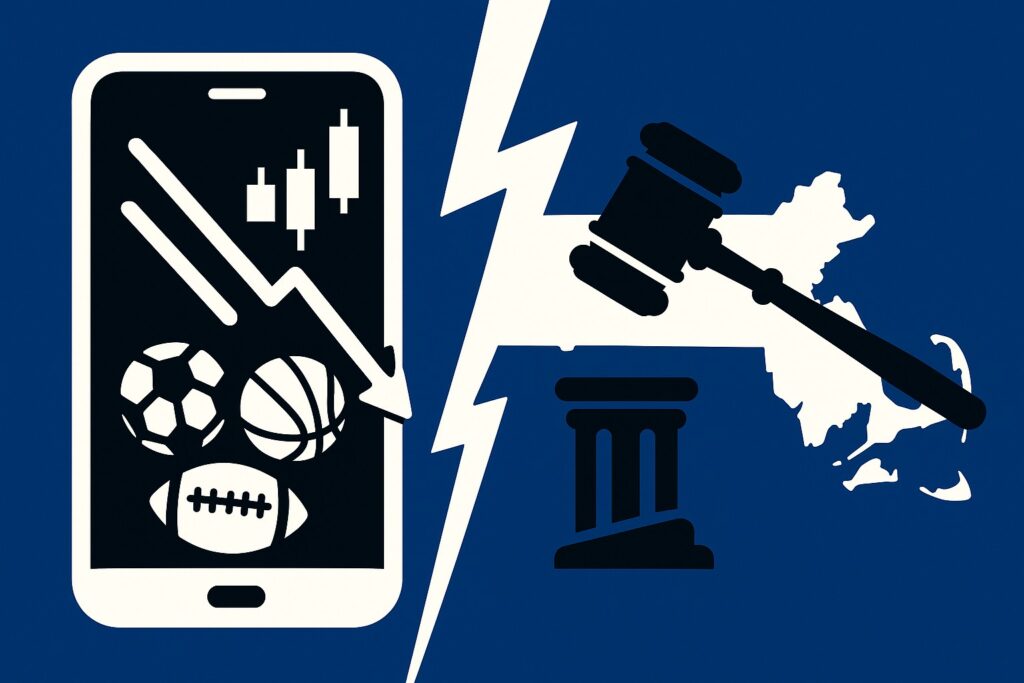With state legislatures in session, lawmakers in multiple states are considering increasing the tax rate imposed on sports betting operators in their jurisdictions.
To some politicians, taking a bigger slice of the piece is a sensible path toward adding to state coffers and reducing budget shortfalls.
The sports betting industry, of course, is against any tax increase, arguing that margins are tight enough and the impact of such measures will ultimately be felt by the customer.
On its website, the Sports Betting Alliance – a trade group composed of BetMGM, DraftKings, FanDuel and Fanatics – encourages people to “Take Action” by signing letters addressed to lawmakers in Louisiana, New Jersey, North Carolina and Ohio, all states where a sports betting tax raise is being debated.
The SBA’s message is similar for all of those states: A sports betting tax increase will result in fewer promotions and worse odds for bettors, players choosing the illegal market instead of the regulated one, and a negative impact on the state’s economy.
While the cause-and-effect might not be as simple as the SBA suggests – and there’s a misperception among some bettors about who actually pays the tax – there’s no doubt tax increases are bad for the industry.
Which states have increased sports betting tax rates since legalization?
Maryland this year joined Ohio and Illinois as states that have juiced up taxes paid by operators since passing sports betting laws.
Last week, Maryland Gov. Wes Moore signed the Budget Reconciliation and Financing Act of 2025, under which the sports betting tax was raised from 15% to 20%. Moore’s original proposal included a 30% increase.
In 2024, Ohio increased the sports wagering tax from 10% to 20% for fiscal year 2025, and Illinois went from 15% to 20-40%, depending on an operator’s revenue.
Ohio Gov. Mike DeWine tried doubling the rate again this year, to 40%, but the proposal was amended out of the state budget. The state is considering legalizing online casino gambling, which would bring in significant additional tax revenue.
Next to come?
Let’s whip around the US and assess the year’s discussion around sports betting tax increases in other states.
New Jersey
Considered by many industry observers as a sports betting model for other states to follow, New Jersey appears unlikely to increase its gambling tax rates this year.
Gov. Phil Murphy proposed upping both the sports betting and online casino tax rates to 25%, from 13% and 15%, respectively, but industry execs and the politicians in their corner are resisting. “Let’s maintain our position as industry-standard,” appears to be the thinking.
North Carolina
The NC State Senate’s passed a budget proposal in April that includes doubling the sports betting tax rate, from 18% to 36%. The provision, however, is not included in the House’s version of the budget, which was released on May 15.
Reconciliation could come via conference committee formed by members of both houses.
Louisiana
A bill that advanced through the House would increase the tax on mobile sports betting, but an amendment lowered the amount of the increase from 32.5% to 21.5%; the current tax rate is 15%. The bill moves on to the Senate.
The sports betting tax increase is proposed as one facet of closing the budget shortfall of about $339 million the state faces in the next fiscal year.
Staying put
At 8.4% and 9.5% of revenue, respectively, Michigan and Indiana tax online sports betting operators on the lower end of the national spectrum (not counting Tennessee, which taxes operators based on handle, Iowa and Nevada are the only others in single digits, both at 6.75%).
There were proposals in both states for modest hikes, but neither gained much traction.
Efforts in Massachusetts also fell short. State Sen. John Keenan sought to raise the sports betting tax rate from 20% to 51% (where it would have matched New York, New Hampshire and Rhode Island as the largest in the US), but the amendment was rejected by his colleagues.





